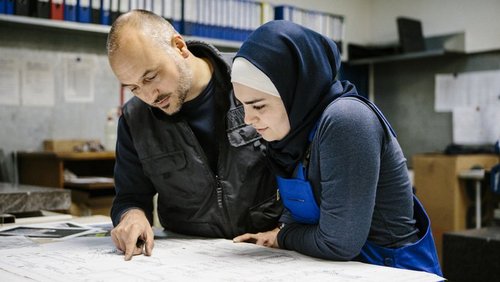By the end of 2016, Germany had registered around 1.6 million persons seeking protection (Federal Statistical Office, 2017a). In order to facilitate their integration into the vocational training and labour market, information on refugees' educational degrees, vocational qualifications and competencies is of central importance.

Education Levels of Refugees: Training and Education in the Main Countries of Origin

By the end of 2016, Germany had registered around 1.6 million persons seeking protection (Federal Statistical Office, 2017a). In order to facilitate their integration into the vocational training and labour market, information on refugees' educational degrees, vocational qualifications and competencies is of central importance.
However, indicators of their education, such as the number of years of school completed, can only be understood with in-depth background knowledge of the education systems in their countries of origin. This report by the German Economic Institute (IW) presents the education and vocational systems of the six countries from which the largest number of refugees come (Syria, Iraq, Afghanistan, Eritrea, Iran and Somalia), with a focus on vocational training. It discusses important differences between the vocational training systems in these countries and the German system. An important source of information for this purpose is the BQ-Portal, the information portal for foreign professional qualifications, which has been implemented by the German Economic Institute on behalf of the Federal Ministry of Economics and Energy (Bundesministerium für Wirtschaft und Energie, BMWi).
There are important differences, for example, in the structure of (vocational) training and education systems in the countries where refugees come from. They usually attach quantitatively little importance to formal vocational training and have a lower number of formalised vocational training occupations. In addition, they do not offer dual vocational training in the regular vocational training systems. It should also be emphasized that formal vocational training has a low social standing in comparison to higher education in the main countries of origin.
More on the topic

Record immigration not only due to flight from Ukraine
In 2022, more people immigrated to Germany than ever before in the history of the Federal Republic. Around 1.46 million more people moved here than left the country, which is more than a quarter more than the previous record of 1.14 million from 2015.
IW
Immigration from Latin America: Successes and potential for securing skilled workers
Against the background of the baby boomers leaving the labour market, Germany will be increasingly dependent on skilled workers from abroad in the coming years in order to secure growth and prosperity.
IW